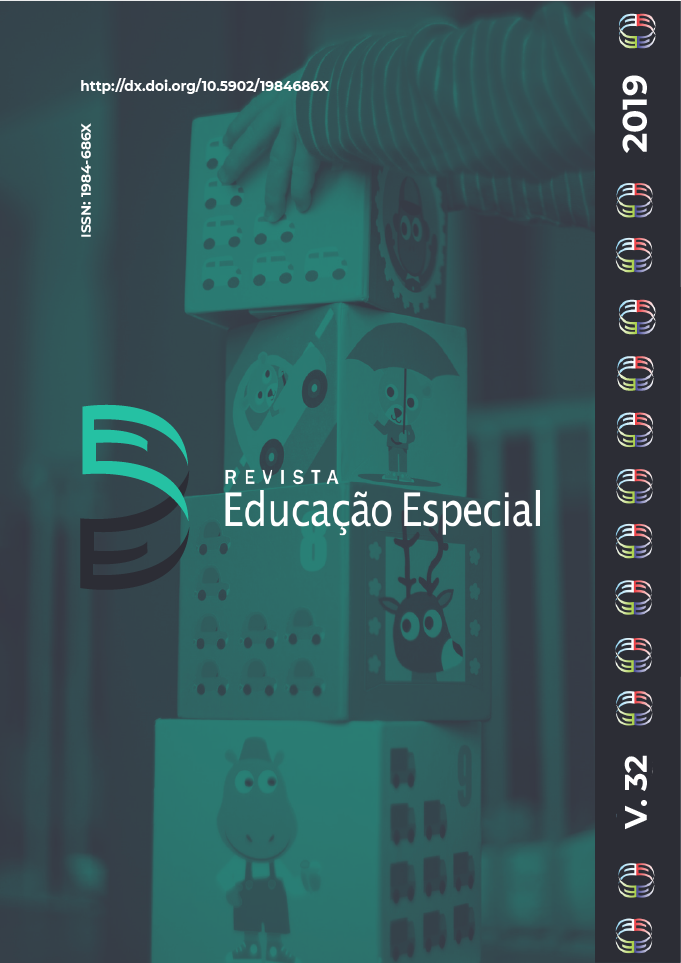Strategies for Speech Therapy for Speech-Language Pathology in People with Down's Syndrome
DOI:
https://doi.org/10.5902/1984686X24631Keywords:
Literature, Down's syndrome, Language.Abstract
This study aimed to characterize and discuss the literacy strategies used in speech therapy intervention in subjects with Down syndrome. For that, the medical records of 29 people, of both sexes, attended in a university extension project, between the ages of two and thirty-one, were analyzed. The analysis of the data observed the literacy practices used with the individuals, followed by the categorization into two groups according to the objectives of the intervention. The first group focused on the development of strategies focused on oral language, such as reading children's books; Psychomotricity activities associated with oral language; reading stories and recounting; use of children's music, exploring the content of it. The aim of the second group was to develop written language, making the individual understand and use writing in its functionality, such as: reading stories that are of interest to the subject, producing various textual genres, games that explore phonological awareness, use of digital genres. It was observed that the strategies of literacy found could contribute to the linguistic, educational and social development of the person with Down syndrome, they seek to involve language in social practices. The strategies are beneficial for speech therapy work, as well as for other professionals who deal with the studied populationDownloads
Downloads
Published
How to Cite
Issue
Section
License
Declaration of originality
We declare that all articles present in the journal Revista Educação Especial (UFSM) are originals and were not submitted for publishing on any other publication, as a whole or a fraction. We also declare that, after being published by Revista Educação Especial (UFSM), a paper will not be submitted to another journal within two years. After this time, our journal transfers the publishing rights to the authors, with a permit granted by the Editorial Council.
We also acknowledge that the originals’ submission to Revista Educação Especial (UFSM) implies on a transference of copyright for physical and digital publishing to the journal. In case of noncompliance, the violator will receive sanctions and penalties predicted by the Brazilian Copyright Protection Law (n. 9610, dated 19/02/98).







